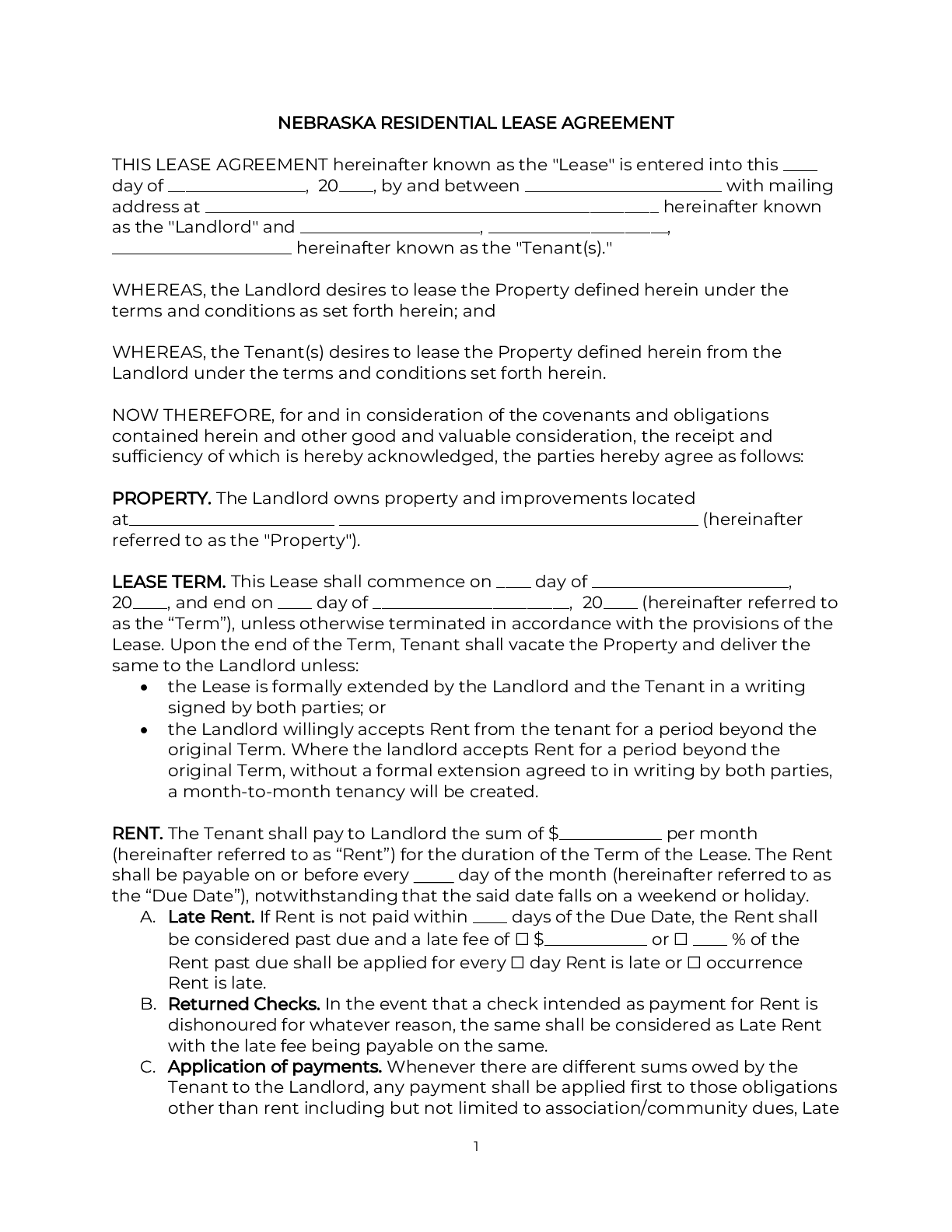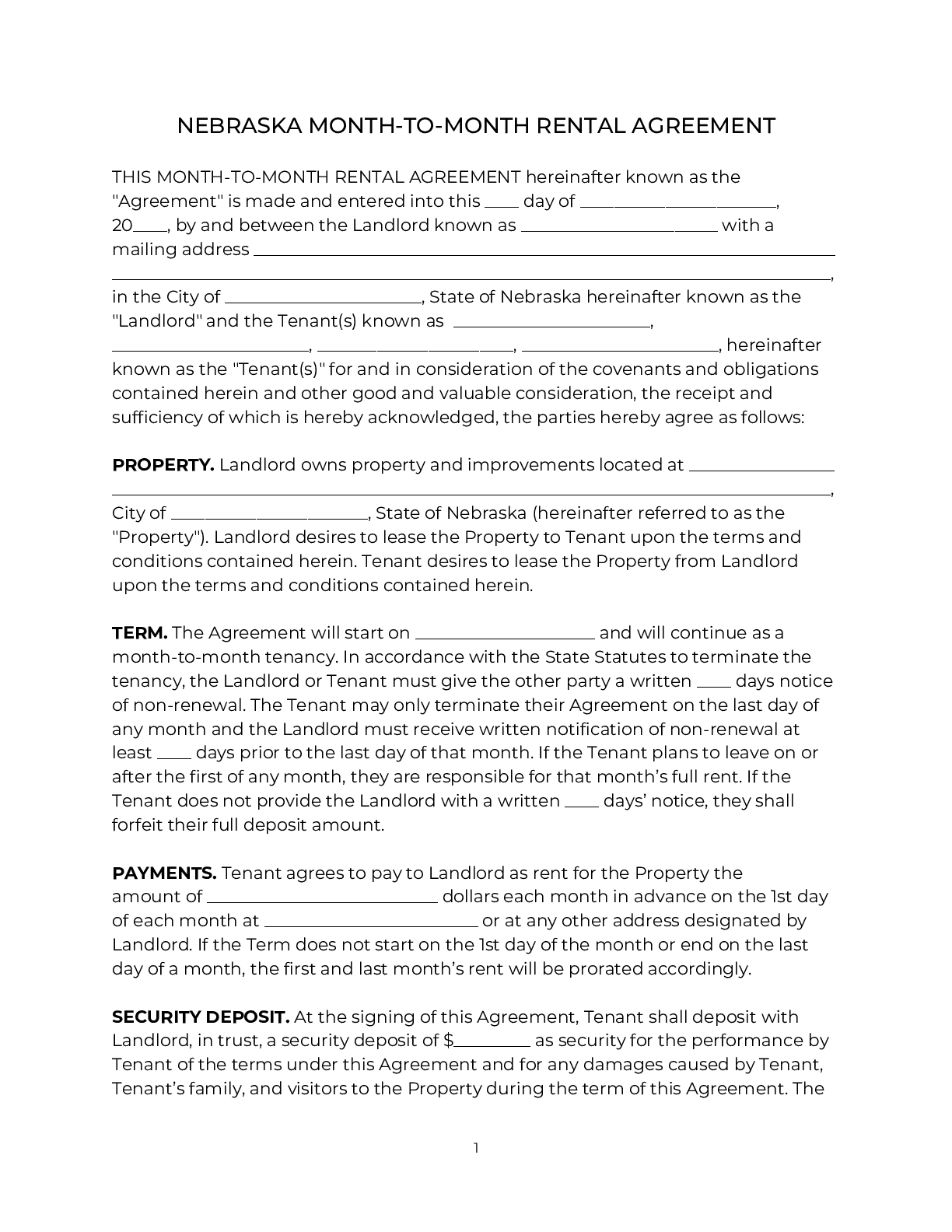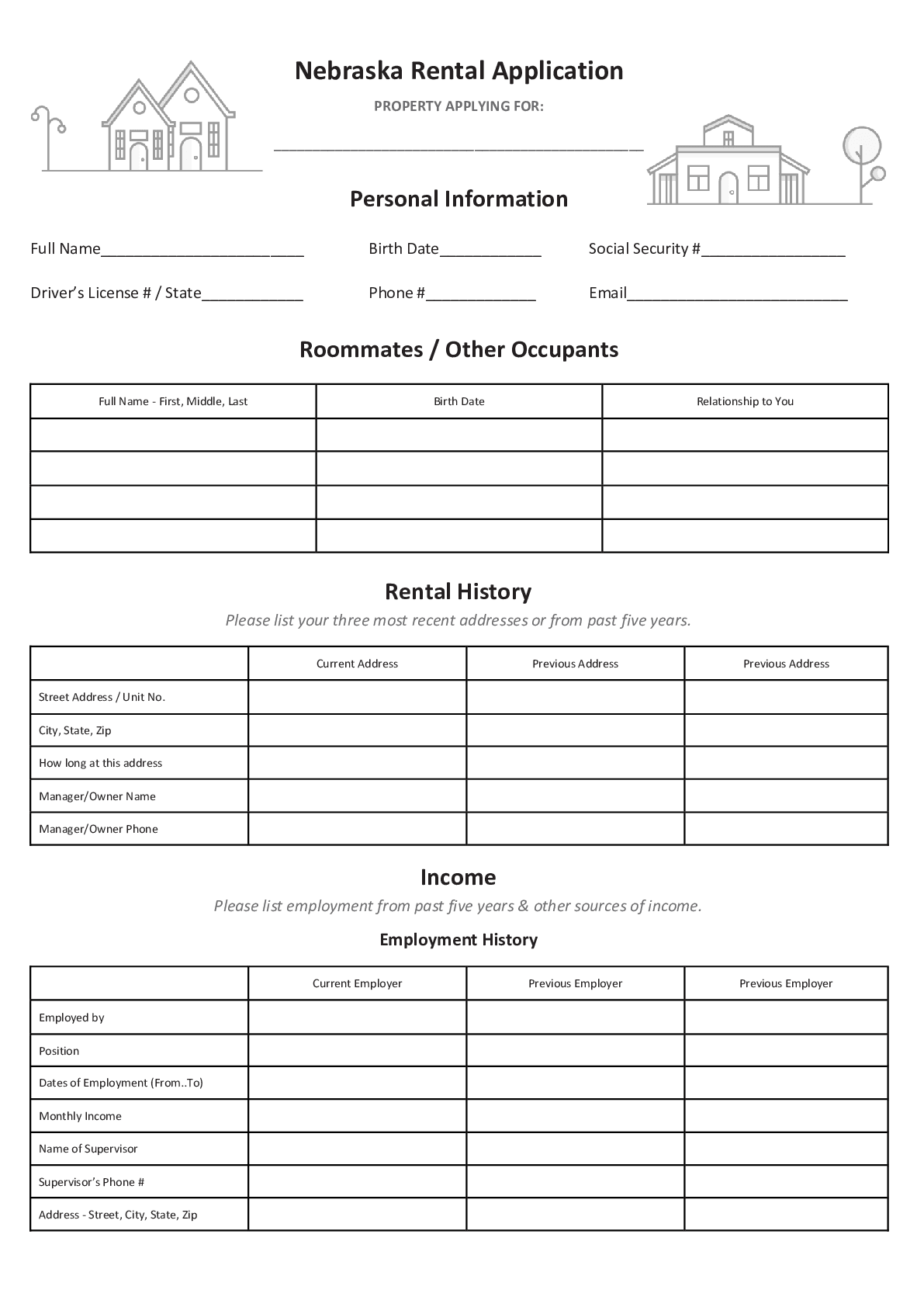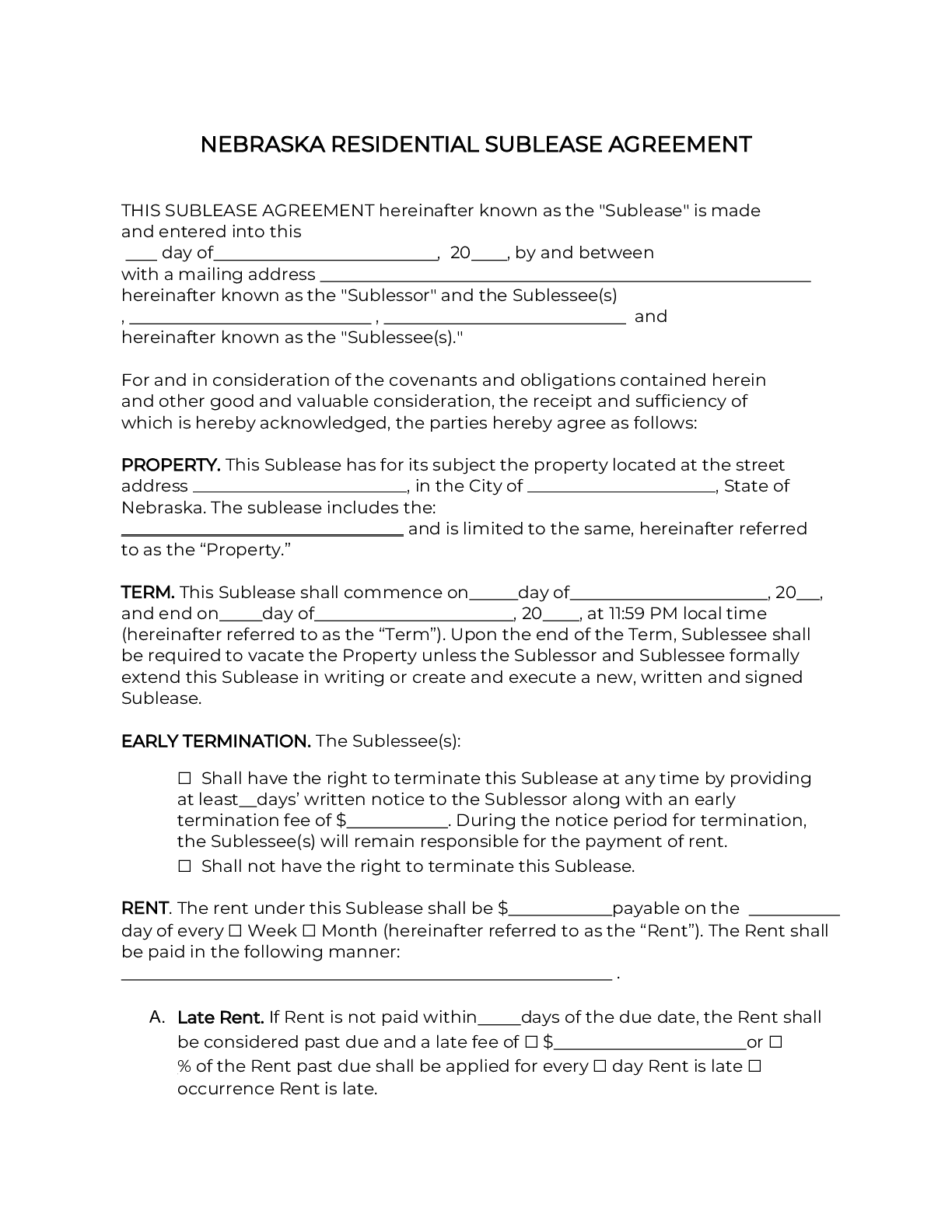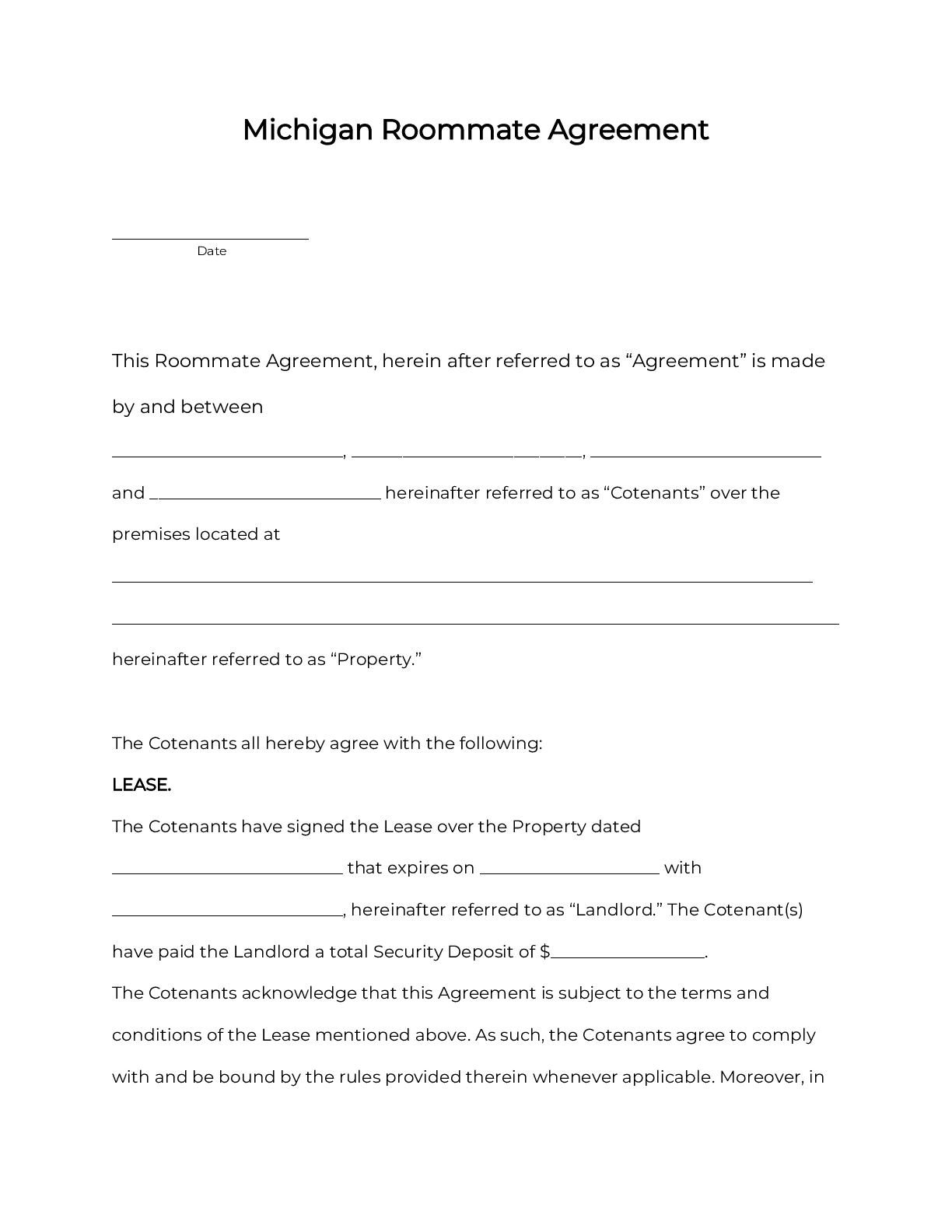A Nebraska rental agreement is a legal contract between a landlord overseeing a rental property and a tenant using the property. Delaware landlord-tenant law governs and regulates these agreements.
Nebraska Rental Agreement Types
A Nebraska roommate agreement is a legal contract between two or more people (“co-tenants”) who share a rental property according to rules they set, including for things like splitting the rent. This agreement binds the co-tenants living together, and doesn’t include the landlord.
Nebraska Required Residential Lease Disclosures
- Landlord’s Name and Address (required for all leases) – Nebraska leases must contain the landlord’s name and address, or that of their authorized agent. This allows required communication (for example, about repairs) to happen in a smooth way. Typically includes additional contact information, such as phone numbers and email addresses.
- Lead Based Paint Disclosures (required for some leases) – Landlords must provide an EPA-approved disclosure and informational pamphlet to tenants renting any property built before 1978.
To learn more about required disclosures in Nebraska, click here.
Nebraska Landlord Tenant Laws
- Warranty of Habitability – Nebraska landlords can only rent out habitable property. This means providing certain basic health and safety features like heat, plumbing, and electricity. Landlords must repair any issues within 14 days after proper notice. Failure to repair lets a tenant sue the landlord or terminate the lease. Tenants usually can’t repair and deduct, or withhold rent.
- Evictions – Nebraska landlords may evict for rent default, lease violations, or illegal acts, among other things. Before filing eviction, landlords must serve tenants with prior notice to pay, comply, or quit, depending on the eviction type. This means most evictions in Nebraska take between a little over a week to a little over a month.
- Security Deposits – Nebraska limits a security deposit to 1 month’s rent. When a lease ends, the landlord must return any unused portion of a tenant’s deposit within 14 days.
- Lease Termination – Nebraska lets month-to-month tenants end a lease with 30 days of advance notice. Terminating a fixed-term lease usually requires active military duty, landlord harassment, uninhabitable property, or domestic abuse.
- Rent Increases and Fees – Nebraska does not limit the amount or timing of a rent increase. Late fees have a $5 limit. Returned check fees have a cap of $10 plus any fees charged by the depositing financial institution.
- Landlord Entry – Nebraska landlords may enter rental property for reasonable business purposes, like maintenance, inspections, and property showings. Except in emergencies, they must provide at least 24 hours of advance notice.
- Settling Legal Disputes – Nebraska lets small claims courts hear landlord-tenant disputes, as long as the amount in controversy is under $3,500. Small claims cannot decide eviction issues. The statute of limitations for contracts like leases is 5 years in (4 years, for oral contracts).
To learn more about landlord tenant laws in Nebraska, click here.
Sources
- 1 Neb. Rev. Stat. § 28-611(5)
-
Any person in violation of this section who makes voluntary restitution to the injured party for the value of the check, draft, assignment of funds, or order shall also pay ten dollars to the injured party and any reasonable handling fee imposed on the injured party by a financial institution.
Source Link




